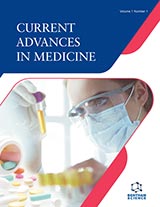Abstract
The practice of sleep medicine within Iceland has been shaped by its position as a sub-arctic Nordic nation with a small population and a strong tradition of sleep research.
The major facility providing clinical diagnostic and therapeutic sleep services is the Landspitali - The National University Hospital of Iceland. Sleep studies are mainly conducted as home sleep apnoea testing with video hook-up instructions and electronic questionnaires. In the context of the COVID-19 pandemic, the majority of positive airway pressure therapy initiation took place at the home of the patient with auto settings and remote follow-up.
Sleep medicine service challenges include inferior access for rural areas, funding limitations, the COVID-19 pandemic and low sleep education at a national level for both the general population and specifically healthcare staff.
The unique clinical and research knowledge gap of Iceland requires studies on the health effects of living at such a northern latitude. The high hypnotic and antidepressant use of Icelanders as well as the high prevalence of restless legs syndrome symptoms may be at least in part contributed by latitude. The 1-1.5 hour discrepancy between the solar clock and the local clock may also cause social jet lag in Icelanders but this needs to be studied further. Finally, social factors such as the high energy drink consumption of Icelandic teenagers and the high screen time made possible by the 99% internet penetration and a mobile connection percentage that exceeds the total population level may contribute to the short sleep length found in Icelandic teenagers.






















